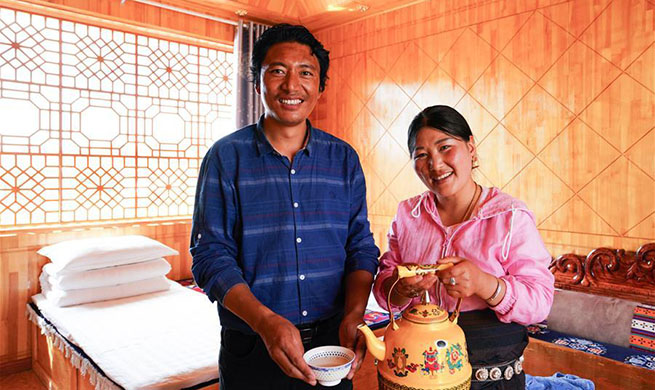GENEVA, Sept. 4 (Xinhua) -- Ensuring optimum nutrition at each stage of a person's life should be a strong focus of health services, which, with the right investment, could save 3.7 million lives by 2025, the World Health Organization (WHO) said Wednesday in a report.
According to the report, titled "Essential Nutrition Actions: Mainstreaming Nutrition Throughout The Life Course", the world has made progress in nutrition but major challenges still exist.
There has been a global decline in stunting, or low height-for-age ratio. Between 1990 and 2018, the prevalence of stunting in children aged under five years declined from 39.2 percent to 21.9 percent, or from 252.5 million to 149.0 million children, though progress has been much slower in Africa and South-East Asia, WHO statistics show.
Obesity, however, is on the rise. The prevalence of children considered overweight rose from 4.8 percent to 5.9 percent between 1990 and 2018, an increase of over nine million children.
Adult overweight and obesity are also rising in nearly every region and country, with 1.3 billion people overweight in 2016, of which 650 million, or 13 percent of the world's population, are obese.
Obesity is a major risk factor for diabetes, cardiovascular diseases, most often heart disease and stroke, musculoskeletal disorders, and some cancers.
"In order to provide quality health services and achieve Universal Health Coverage, nutrition should be positioned as one of the cornerstones of essential health packages," said Dr. Naoko Yamamoto, assistant director-general at the WHO. "We also need better food environments which allow all people to consume healthy diets."
While calling on countries to decide which interventions best support their national health policies, strategies and plans, the WHO recommends some key intervening approaches, such as providing iron and folic acid supplements as part of antenatal care, and delaying umbilical cord clamping to ensure babies receive important nutrients they need after birth.
The WHO also calls on countries to invest in nutrition actions to help get closer to their goal of achieving universal health coverage and the UN Sustainable Development Goals.
That can also help the economy, with every one U.S. dollar spent by donors on basic nutrition programs returning 16 U.S. dollars to the local economy, the WHO estimates.

















